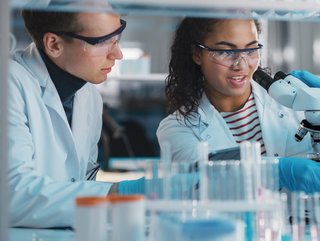Why artificial intelligence is important for drug discovery?

Recently MarketsandMarkets released an exclusive report on artificial intelligence (AI) in drug discovery and found that the market is projected to reach US$4bn by 2027 from US0.6bn in 2022.
This expected growth is driven by the growing need to control drug discovery and development costs, and the growing number of cross-industry collaborations and partnerships.
Despite this projected growth, the report found a lack of data sets in the field and the inadequate availability of skilled labour are some of the factors challenging the growth of the market.
In drug discovery, AI has the potential to make processes faster and more cost-effective, with the hope of reducing the time a new drug needs to reach the patient. AI can sort through masses of information and data from tissue or blood samples from patients who have the disease and others who don't.
This could help researchers look into new compounds likely to target those proteins. During the coronavirus pandemic, AI was successfully used to identify potential drugs that could be used to treat COVID-19.
Last year, Google’s Deepmind AI system AlphaFold has found a solution to how proteins fold into their 3D structure, which may create new opportunities in structure-based drug design. Just twelve months later, AlphaFold has been accessed by more than half a million researchers and used to accelerate progress on important real-world problems ranging from plastic pollution to antibiotic resistance.
Now, DeepMind has released predicted structures for nearly all catalogued proteins known to science, which will expand the AlphaFold DB by over 200x - from nearly 1 million structures to over 200 million structures - with the potential to dramatically increase our understanding of biology.
AI and drug discovery: overcoming challenges in healthcare
The transformative impact AI will have on drug discovery means pharma companies need to plan for a future in which AI is routinely used in drug discovery. If these companies determine where and how AI can add the most value, pharmaceuticals can focus on the new applications available to them that will support them the best.
In small-molecule drug discovery, AI can help in a number of ways:
- Providing access to new biology
- Offering improved or novel chemistry
- Boosting success rates
- Enabling a quicker and cheaper discovery process.
Additionally, AI can address different challenges and constraints often found in traditional research and development.
AI has already proven its worth in this field, and a key example is in the fight against covid as scientists and technologists around the world looked to create a vaccine to protect those from becoming seriously ill from the virus.
Matthew Putman, an expert in artificial intelligence and CEO of Nanotronics, was working with one of the top vaccine developers and said AI was helping teams manage the deluge of data that comes with a project like this.
He explained that while the number of vaccinated people in the country continued to rise by the millions each day, there was some concern about how the vaccines will hold up against the multitude of variants.
Putman added that an AI system would help with building actionable data sets that allow doctors to examine root causes or things that researchers don’t have time to spend on.
Undoubtedly, AI is revolutionising the way the healthcare industry develops new drugs and the applications don’t begin and end with drug discovery. This multifaceted technology is also being applied to help with patient experience, patient risk identification, radiology and more.






